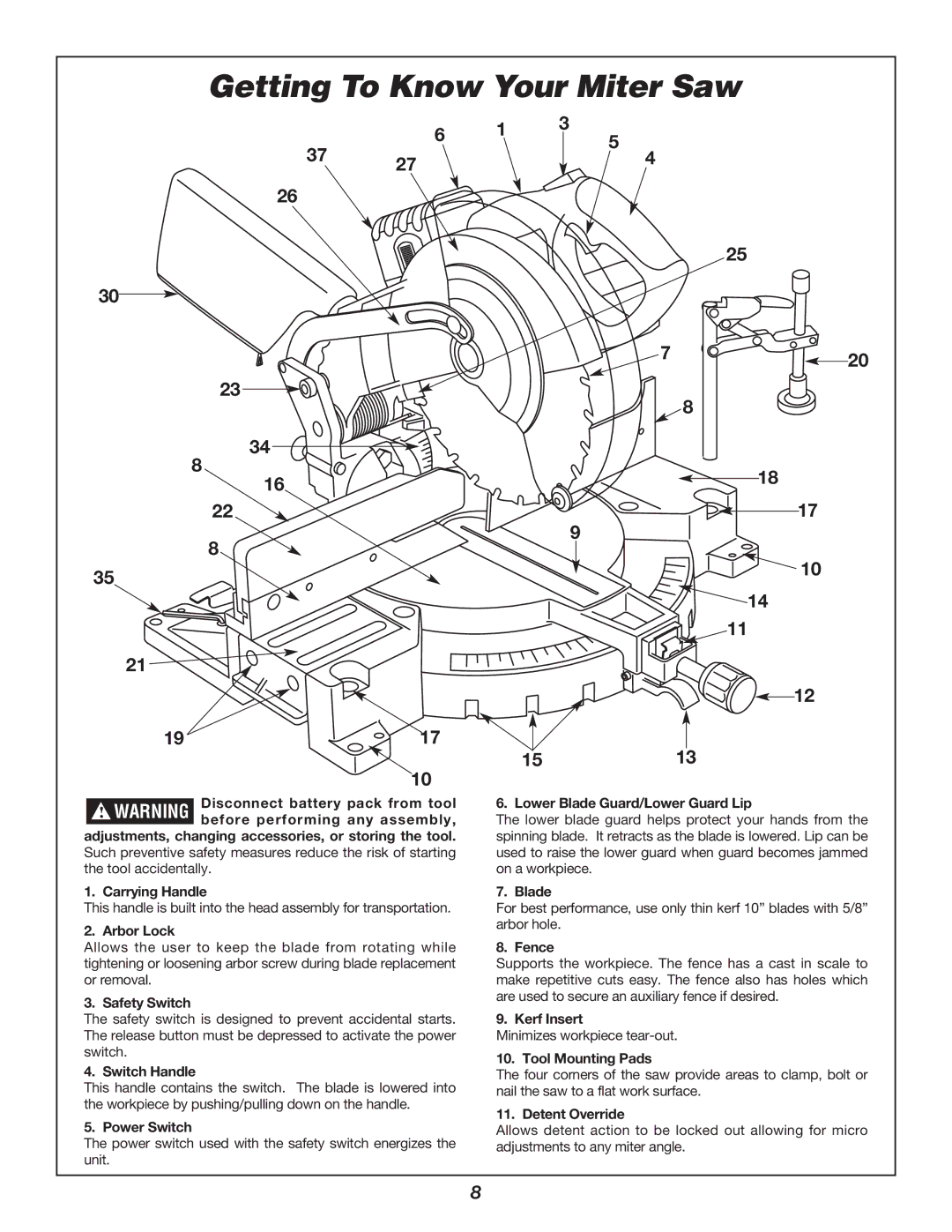
Getting To Know Your Miter Saw
6
37 27
26
30
23
34
8
16
22
8
35
21 ![]()
19 | 17 |
10
Disconnect battery pack from tool ! WARNING before performing any assembly,
adjustments, changing accessories, or storing the tool. Such preventive safety measures reduce the risk of starting the tool accidentally.
1. Carrying Handle
This handle is built into the head assembly for transportation.
2. Arbor Lock
Allows the user to keep the blade from rotating while tightening or loosening arbor screw during blade replacement or removal.
3. Safety Switch
The safety switch is designed to prevent accidental starts. The release button must be depressed to activate the power switch.
4. Switch Handle
This handle contains the switch. The blade is lowered into the workpiece by pushing/pulling down on the handle.
5. Power Switch
The power switch used with the safety switch energizes the unit.
1 3
5
4
25
7![]() 20
20
![]() 8
8
18
17
9
![]() 10
10 ![]() 14
14
11
![]() 12
12
1513
6. Lower Blade Guard/Lower Guard Lip
The lower blade guard helps protect your hands from the spinning blade. It retracts as the blade is lowered. Lip can be used to raise the lower guard when guard becomes jammed on a workpiece.
7. Blade
For best performance, use only thin kerf 10” blades with 5/8” arbor hole.
8. Fence
Supports the workpiece. The fence has a cast in scale to make repetitive cuts easy. The fence also has holes which are used to secure an auxiliary fence if desired.
9. Kerf Insert
Minimizes workpiece
10. Tool Mounting Pads
The four corners of the saw provide areas to clamp, bolt or nail the saw to a flat work surface.
11. Detent Override
Allows detent action to be locked out allowing for micro adjustments to any miter angle.
8
